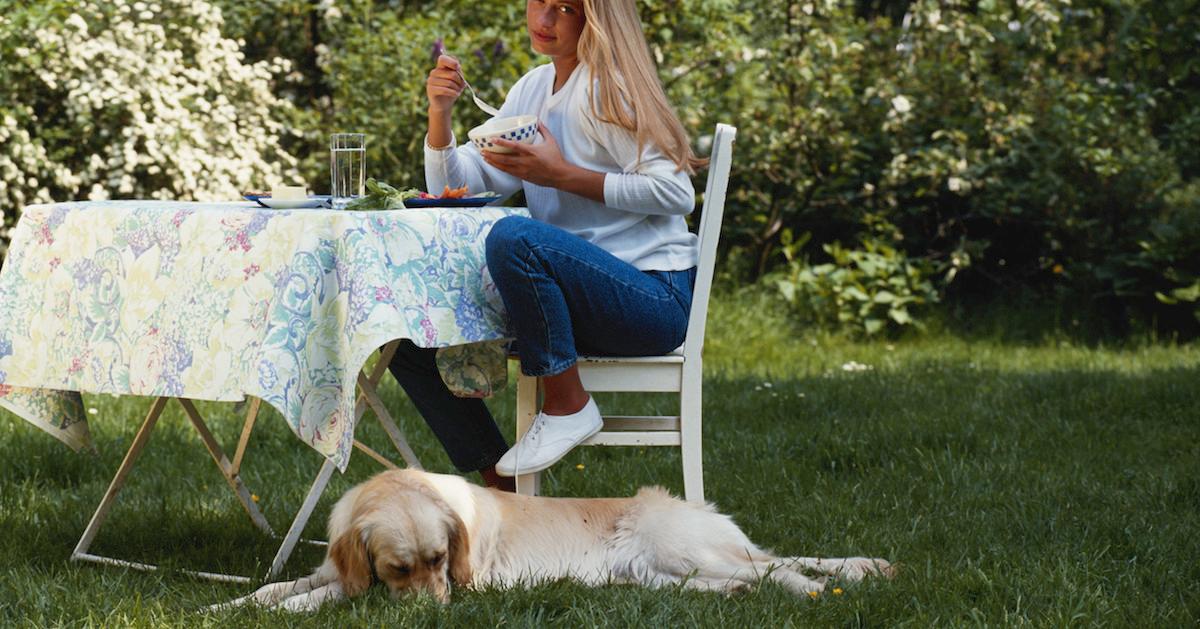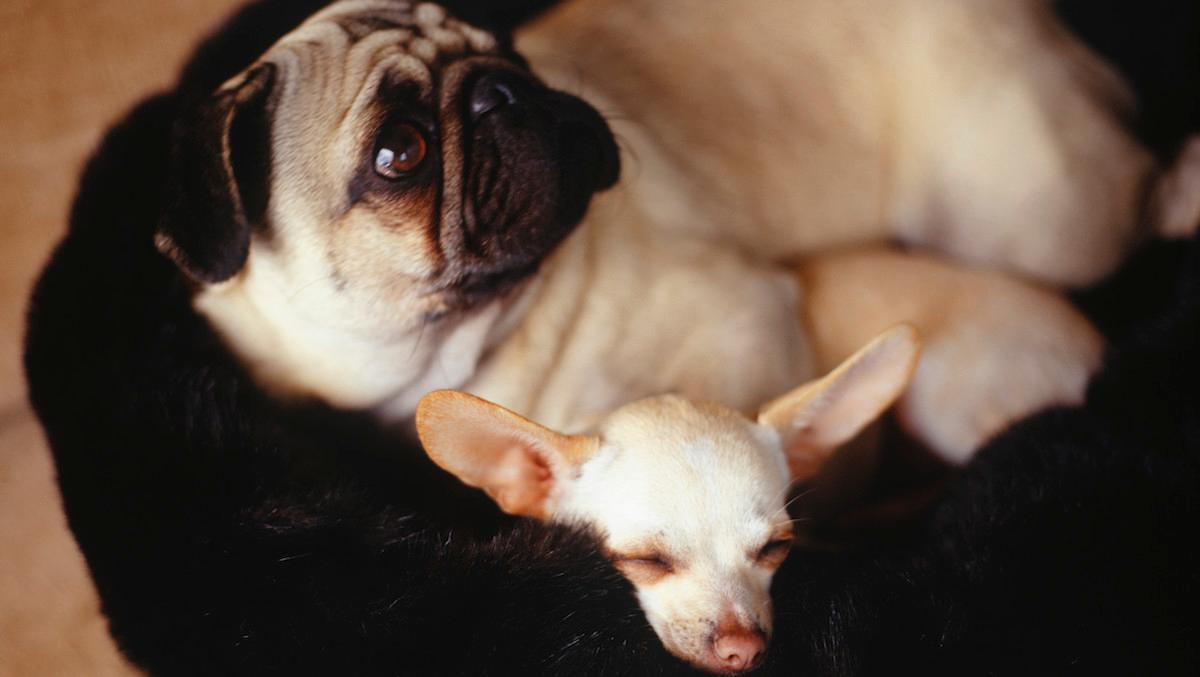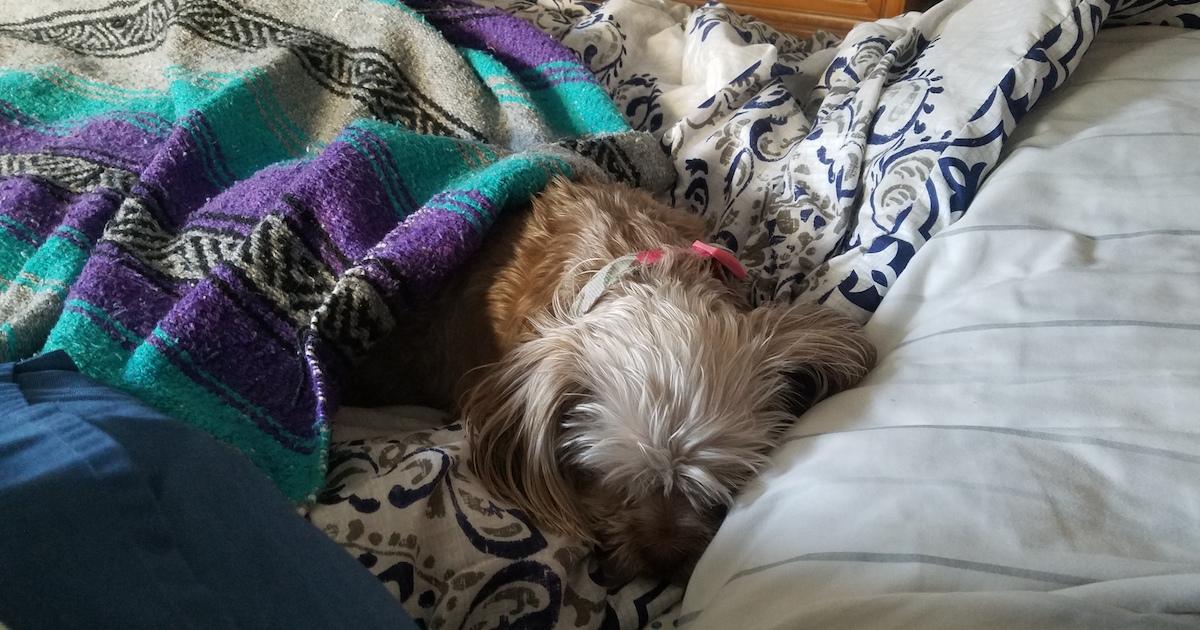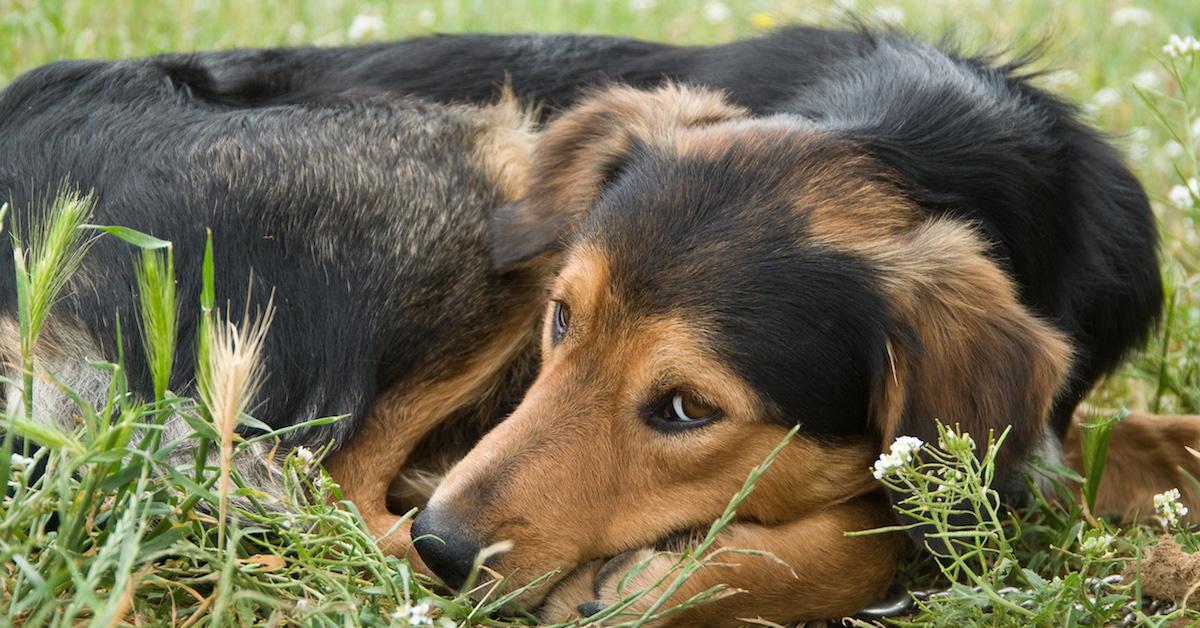What Your Dog’s Sleeping Position Means
Published Feb. 12 2021, 2:48 p.m. ET

They say it’s best to let sleeping dogs lie, and when it comes to my dog, Leia, I’m perfectly OK doing that. She looks so cute, how am I supposed to interrupt that? Regardless, whether they are sprawled out in a warm spot of sun or curled up at the end of our beds, watching your snoozing pooch is a delightful piece of having a pet. But what does my dog’s sleeping position mean? Is it indicative of how they are feeling, what they’re dreaming, or something else entirely?
What does my dog’s sleeping position mean?

As it turns out, your dog’s sleeping position can indicate a number of different things about their mental and physical well-being. Each one of the positions listed below indicates something different about the way your dog is feeling, but it’s important to take all of these with a grain of salt. After all, if your dog is like mine, then they are a special snowflake with unique and entertaining attributes all their own.
The Superman flight
The “Superman” position is when your dog is laying on their belly with their paws out in front and behind them. According to DogTime, a lot of puppies and high-energy dogs adopt this position because it allows them to wake and jump right into playtime. It’s the position for dogs who don’t want to miss a moment or those who need to fly in and save the day at a moment’s notice.

The side sleeper
Many dogs like sleeping on their side. It’s a common position for puppies but also for older dogs who might be suffering from joint pain. According to mattress company Casper, dogs that sleep in this position are generally in a very deep sleep. It signifies that your pup feels safe and relaxed in their environment. They are comfortable with their surroundings and feel no need to tense up “just in case.”
The lion at the gates
Like the Superman pose, the so-called lion’s pose is also indicative of a dog that might need to snap into action in a hurry, according to Dr. Sara Wooten, DVM, CVJ, of Pumpkin Pet Insurance. Dogs that sleep this way often look like sphinxes, only with their head laid on top of their front paws. Dogs that tuck their front paws in and kick their back legs out are also considered to be sleeping in the lion’s pose.

The comfy donut
The comfy donut is a position that dogs adopt when they are trying to protect themselves or getting used to an environment. According to veterinarian Dr. Linda Simon of ThePets, dogs might also adopt this position if they are trying to keep warm. Ex-stray dogs or those that have lived outside much of their lives usually adopt this position. It works by tucking all of the pup’s extremities and organs close to the body, thereby protecting them from predators or the elements.
The blanket burrower
Some dogs like sleeping in the burrower position. That means they are either surrounded by pillows, covered by blankets, or buried neck-deep in an amalgam of both. According to Casper, dogs often choose to sleep this way because they are searching for comfort or security, but that’s not always the case. Some dogs are just used to it.
My dog loves this position, and part of that is because we have allowed her to sleep on our bed, on the couch, and basically anywhere she wants. Then again, they say that burrowers tend to be affectionate but needy, and this certainly tracks with my dog.

The exposed belly
Your dog sleeping on their belly could mean one of two things: they have complete trust in you, or they’re hot. According to DogTime, dogs that sleep on their belly in the summer months are trying to cool down. Otherwise, it could be an indication that your dog is fully comfortable with their environment. When a dog shows you their belly, it means that they trust and love you enough to be vulnerable.

When should I be concerned about my dog’s sleeping position?
Most of the sleeping positions mentioned above are common. Some, like the belly-up position, are more common in younger dogs. You need only be concerned if your dog’s sleeping pattern undergoes any changes. If they seem to be sleeping a lot more than usual or not at all, it might be cause for some alarm. But keep in mind that according to Pawp, some dogs just like to sleep a lot. Older dogs, in general, sleep almost as much as they did when they were puppies.
Moving house or a new baby could disrupt your dog’s schedule as much as your own. So keep that in mind when assessing if your dog is experiencing any strange new sleeping behaviors. Just keep an eye on any sudden changes to sleep patterns. You know your dog pretty well, and you can trust your instincts when you think something is wrong.